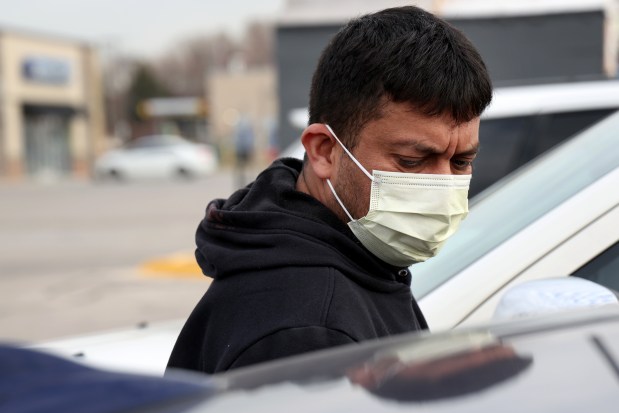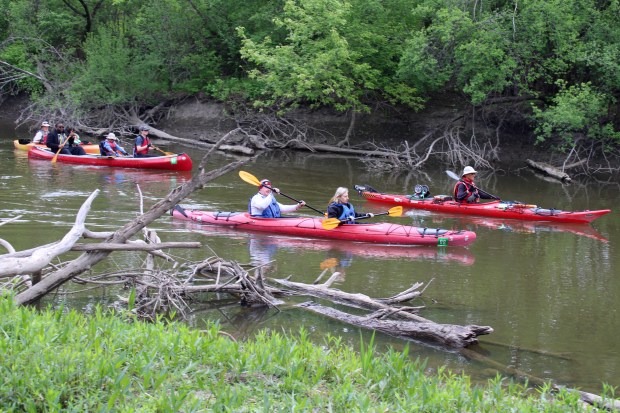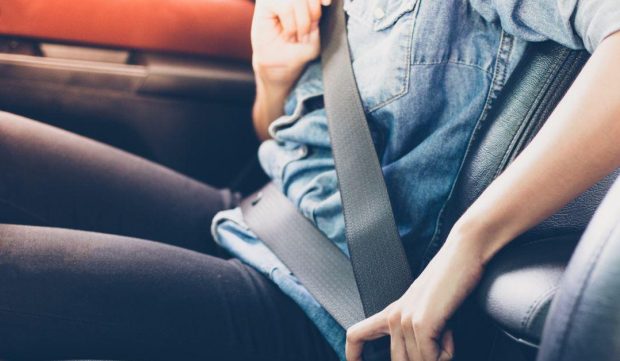The attorney representing two Venezuelan siblings announced Wednesday that one of the brothers will be released from ICE custody under supervision in order to donate his kidney to his ailing younger brother, an asylum-seeker in Cicero.
The attorney, Peter Meinecke, and The Resurrection Project, a nonprofit advocacy group representing the case, told the Tribune that José Gregorio González, 43, would likely be released this week from detention in Clay County Detention Center in Indiana, though details were still unclear. ICE could not be immediately reached for comment.
His brother, Alfredo Pacheco, 37, is facing terminal renal failure. Last month, the Tribune was the first to report that González had been arrested by the U.S. Immigration and Customs authorities and was awaiting deportation.
Pacheco is still in disbelief that his brother will return to their home in Cicero to undergo the organ transplant.
“When I found out, I started to cry. He will save my life, I feel so grateful,” Pacheco told the Tribune Wednesday.
For now, he said, they celebrate having a chance to fight for Pacheco’s life.
Earlier this week, the local ICE agency denied González a request for a stay of removal, which ultimately delays the deportation process while legal proceedings or appeals are pending. And the family was awaiting a request for humanitarian parole.
By Tuesday, Meinecke learned González was being transferred to a different detention center, and Pacheco and his supporters feared he was being deported.
On Wednesday morning, however, Meinecke got a call from the agency letting him know that González’ release was being processed.
“It’s the right thing to do,” said Meinecke about Gonzalez’ release. “This is a matter of life and death for the siblings and the community.”
More than 1,700 people have signed a petition requesting that ICE release González to save Pacheco’s life. While many elected officials, including Sen. Tammy Duckworth, Sen. Dick Durbin and U.S. Rep. Jesús ‘Chuy’ García have rallied in support of the Venezuelan brothers.
Pacheco said that he has told his family in Venezuela about his brother’s release to donate the kidney.
“I won’t believe it until I see him here, until I can hug him,” Pacheco said. “For a long time I thought I was alone in this country, that I would face this illness alone, but now I see that is not true, there are many people willing to be by my side.”
“This marks a victory for humanity and compassion,” said Erendira Rendón, chief programs officer for The Resurrection Project. “…This decision recognizes that our fundamental human rights transcend immigration status and that our communities have the power to demand that our humanity be recognized.”
González made his way to the United States from Venezuela shortly after finding out that Pacheco faced the life-threatening illness. He did not think twice before he offered to be his donor. He said he would donate a kidney even if he and his brother are not compatible to make sure that he gets a transplant from someone sooner rather than later.
A spokesperson for The University of Illinois Hospital & Health Sciences System confirmed that Pacheco is on the waitlist for a transplant.
But time is running out. Pacheco has nearly 100% kidney failure and gets dialysis three times a week for four hours a day from 4 to 8 a.m.
On March 3, ICE agents arrested González after the two left Pacheco’s dialysis and as they were getting ready to go to work. The pair had just secured an appointment to go forward with more testing for the organ transplant after a complicated process to get approved for the transplant under public insurance.
The two pleaded with immigration authorities to release González on humanitarian parole to donate the kidney.
“After that, I will return to Venezuela,” González told the Tribune from a call in the detention center last month.
The only option for González to stay and undergo the treatment to help his brother is humanitarian parole, Meinecke said. The request for humanitarian parole is made directly to the ICE officer in charge of the detainee’s case, and the agent can authorize their release for a set period at their discretion and then return to Venezuela.





